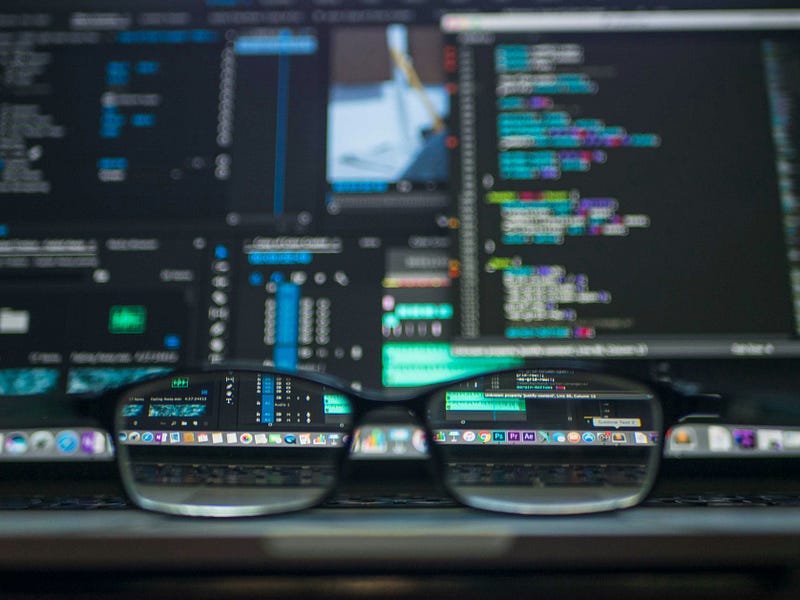
What are Quantum Computers?
Imagine solving a Rubik’s cube, but instead of twisting and turning the layers one by one, you could evaluate every possible solution simultaneously. Now imagine doing this not just for a Rubik’s cube, but for problems so complex that even the world’s fastest supercomputers would take millennia to solve. This is what quantum computers promise to do.
These machines do not follow the same rules as regular computers. Instead, they leverage the laws of quantum physics — rules that govern the very smallest particles of the universe. Quantum computers process information in fundamentally new ways, unlocking solutions to challenges once thought unsolvable. Let us explore what makes them unique, how they work, and why they matter.
What Makes a Quantum Computer Different?
Classical computers process information using bits, which can either be 0 or 1. Quantum computers, however, use quantum bits — or qubits — that behave very differently. To understand how, we need to dive into three key ideas in quantum mechanics: superposition, entanglement, and interference.
Superposition: Exploring Multiple States
Imagine flipping a coin. A classical bit is like a coin that lands heads (0) or tails (1). A qubit, however, is like a coin spinning in mid-air. It does not settle for one outcome but exists in a mixture of both heads and tails simultaneously. This is called superposition.
Superposition allows quantum computers to explore multiple possibilities at once. For example, if a classical computer is tasked with finding the shortest path through a maze, it would test one route at a time. A quantum computer, thanks to superposition, could evaluate all paths simultaneously, significantly speeding up the solution.
Entanglement: The Power of Connection
Now imagine you have two spinning coins. If they are entangled, flipping one instantly determines the outcome of the other, no matter how far apart they are. This strange connection, called entanglement, links qubits in a way that makes them work together as a unified system.
Entanglement enables quantum computers to perform coordinated calculations across multiple qubits. This interconnectedness gives quantum systems their extraordinary power, allowing them to solve certain problems much faster than classical computers.
Interference: Filtering the Right Answers
Imagine throwing two stones into a pond and watching the ripples overlap. Some waves amplify each other, while others cancel each other out. Quantum computers use this principle of interference to reinforce correct solutions while suppressing incorrect ones.
By carefully designing quantum algorithms, scientists manipulate interference patterns to ensure the machine zeroes in on the most likely answers. This efficiency makes quantum systems highly effective for specific problem-solving tasks.
How Do Quantum Computers Solve Problems?
Let us imagine a practical scenario. Suppose you are searching for a specific book in a library. A classical computer would scan the shelves book by book until it found the one you are looking for. A quantum computer, on the other hand, acts like a librarian who instantly knows the location of the book because it considered all possibilities simultaneously.
Quantum computers achieve this by manipulating qubits through a series of operations called quantum gates. These gates allow qubits to shift between states, interact with one another, and create interference patterns. At the end of these operations, the system “measures” the qubits, collapsing their superpositions into a final state that represents the solution.
This approach is especially powerful for problems that involve enormous numbers of possibilities — problems that classical computers struggle to solve efficiently.
Applications of Quantum Computers
Quantum computers are not designed to replace everyday devices like laptops or smartphones. Instead, they are specialized tools for solving problems in fields that benefit from their unique capabilities. Here are some examples:
Medicine: Simulating Molecules for Drug Discovery
Simulating how molecules interact at the atomic level is an incredibly complex task. Classical computers rely on approximations, which can miss important details. Quantum computers, however, can simulate molecular structures precisely, potentially speeding up the discovery of new drugs or materials.
For example, researchers are exploring how quantum computers could help design better cancer treatments or develop more efficient batteries for electric vehicles.
Finance: Optimizing Portfolios
Managing investments involves balancing risk and reward, a task that grows exponentially more complex as the number of variables increases. Quantum computers can process these variables simultaneously, identifying the best combinations faster than classical systems. This could revolutionize areas like portfolio management, fraud detection, and market analysis.
Logistics: Solving Routing Problems
Imagine a global shipping company trying to minimize delivery times while considering fuel costs, traffic patterns, and weather conditions. Quantum computers excel at optimizing such complex systems, where the number of potential solutions is overwhelming. They could help streamline everything from supply chains to flight schedules.
Cryptography: Strengthening and Breaking Codes
Quantum computers pose both risks and opportunities for cryptography. They could crack current encryption methods, which rely on the difficulty of factoring large numbers — a task quantum machines can perform much faster. At the same time, quantum mechanics also offers tools to create new encryption systems that are more secure against these attacks.

Challenges in Building Quantum Computers
Quantum computers hold great promise, but building and scaling them is an extraordinary technical challenge. This is because the principles that make them powerful — like superposition and entanglement — also make them fragile and difficult to control. Let us break down some of the major hurdles:
Fragility: Why Qubits Are Delicate
Qubits are extremely sensitive to their environment. They can be disrupted by even the tiniest disturbances, such as changes in temperature, vibrations, or electromagnetic fields. This sensitivity means that maintaining a qubit’s quantum state — its ability to exist in superposition or remain entangled — is incredibly difficult.
For instance, imagine trying to balance a spinning plate on a stick while standing in a windy room. Even the slightest gust of air could cause the plate to wobble or fall. Quantum systems require near-perfect isolation from external noise, and even then, qubits naturally “decohere,” or lose their quantum state, over time. Engineers must work in ultra-cold environments (just above absolute zero) to stabilize qubits and reduce these errors.
Scalability: The Challenge of Building More Qubits
The power of a quantum computer grows exponentially with the number of qubits. However, scaling up from a handful of qubits to the thousands or millions needed for practical applications is a monumental challenge. Each qubit needs to be individually controlled while still interacting with others. The more qubits you add, the harder it becomes to prevent errors and interference.
For comparison, it is like trying to choreograph a synchronized dance with thousands of dancers, where each one is balancing on a tightrope. Ensuring that every qubit performs as intended, while keeping the whole system stable, requires incredibly precise engineering.
Algorithms: Unlocking the Power of Quantum Computers
While quantum computers can, in theory, solve problems that classical computers cannot, they require specialized algorithms to do so. Quantum algorithms are not just “faster” versions of classical ones — they must be designed to take advantage of superposition, entanglement, and interference.
Currently, only a few quantum algorithms have been developed and tested, such as Shor’s algorithm (for factoring large numbers) and Grover’s algorithm (for searching unsorted databases). These are promising, but they address niche problems. Developing practical algorithms for real-world challenges — like drug discovery or optimizing supply chains — remains an open field of research. It is akin to building a powerful new tool but still figuring out how to use it effectively.
By addressing these challenges, researchers hope to make quantum computers more reliable, scalable, and versatile. These obstacles are significant, but progress is being made. For instance, error correction techniques are being developed to counteract qubit instability, and companies are exploring new materials and architectures to build more robust systems.
Why Quantum Computing Matters
Quantum computers offer a fundamentally new way of processing information, enabling breakthroughs in medicine, materials science, logistics, and beyond. They are not simply faster; they allow us to solve problems previously out of reach. By leveraging superposition and entanglement, quantum systems naturally represent the complexities of the world, tackling challenges classical computers struggle with — such as simulating molecular interactions or understanding the forces shaping the universe.
For instance, they could pave the way for room-temperature superconductors, revolutionizing energy efficiency, or help decode protein structures, accelerating the development of life-saving medicines. Early prototypes are also showing potential in optimizing global supply chains, predicting financial risks with greater precision, and creating encryption systems resistant to even the most sophisticated attacks. These are not distant dreams but tangible areas where quantum systems are already being tested.
Despite their promise, quantum computers are still in their infancy. Today’s machines are noisy, error-prone, and far from replacing classical systems. They are prototypes, much like the Wright brothers’ first airplane — proofs of concept that need refinement to reach their full potential. Overcoming challenges such as qubit fragility, scalability, and algorithm development will take years. Yet, progress is accelerating, driven by investments from governments, universities, and private companies that recognize the value of this transformative technology.
Quantum computing is not just about machines; it is about expanding the boundaries of what humanity can achieve. It invites us to think differently — not as constrained by fixed paths but as exploring a space of infinite possibilities. This shift in perspective opens doors not only to solving the world’s most complex problems but also to imagining entirely new ways of interacting with the universe.
As we stand at the dawn of this quantum revolution, the challenges are immense, but the possibilities are far greater. Whether designing life-saving drugs, securing communications, or unraveling the mysteries of the universe, quantum computing represents the next great leap in human innovation.

Thank you for sharing your Quriosity about quantum computing! If you enjoyed this, I would love to hear your thoughts or suggestions for future topics. Let us keep uncovering the wonders of science together. Connect with me on LinkedIn or follow me on Medium for more stories about science, curiosity, and the fascinating world of quantum physics.
#YearOfQuantum #IYQ25 #StayCurious #QuantumLand #Quriosity #QuantumComputing #Science #Innovation #Technology

